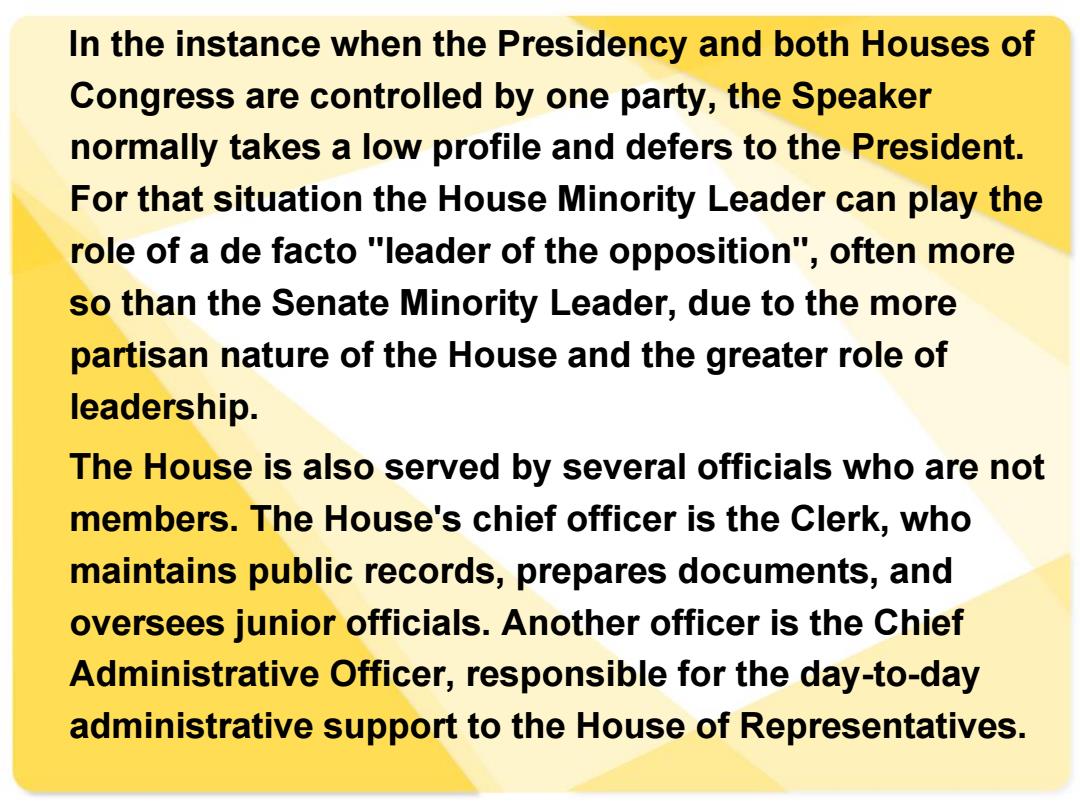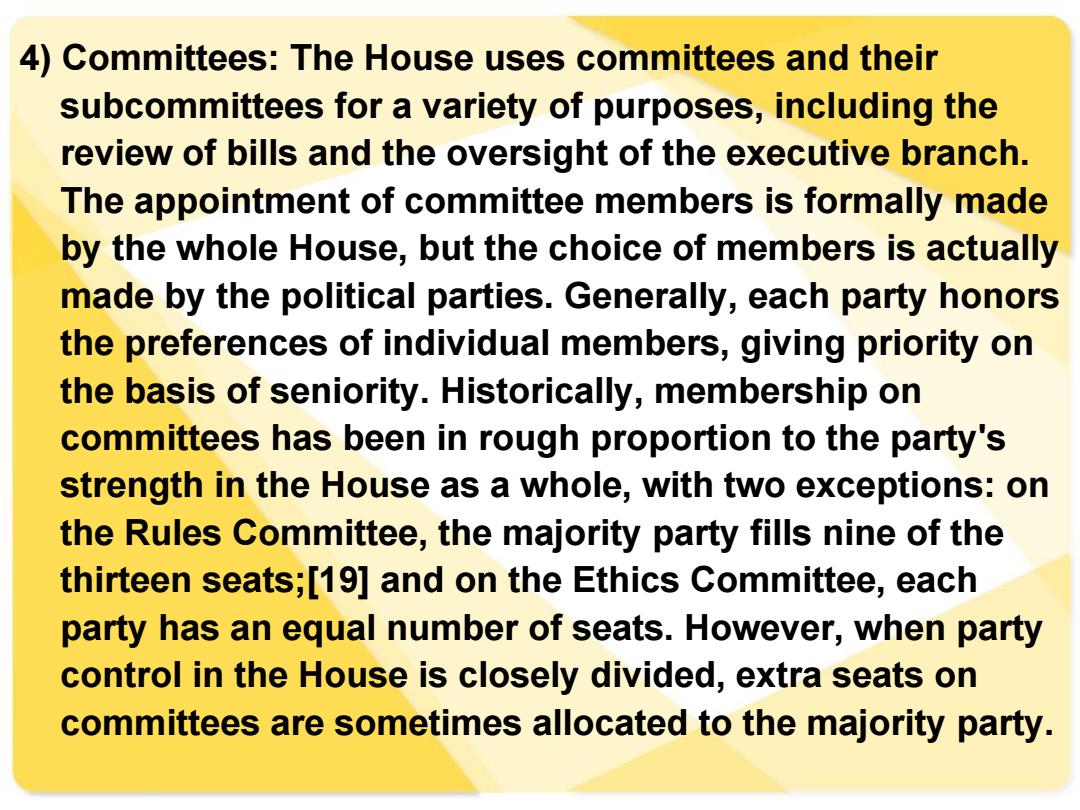
In the instance when the Presidency and both Houses of Congress are controlled by one party,the Speaker normally takes a low profile and defers to the President. For that situation the House Minority Leader can play the role of a de facto "leader of the opposition",often more so than the Senate Minority Leader,due to the more partisan nature of the House and the greater role of leadership. The House is also served by several officials who are not members.The House's chief officer is the Clerk,who maintains public records,prepares documents,and oversees junior officials.Another officer is the Chief Administrative Officer,responsible for the day-to-day administrative support to the House of Representatives
In the instance when the Presidency and both Houses of Congress are controlled by one party, the Speaker normally takes a low profile and defers to the President. For that situation the House Minority Leader can play the role of a de facto "leader of the opposition" , often more so than the Senate Minority Leader, due to the more partisan nature of the House and the greater role of leadership. The House is also served by several officials who are not members. The House's chief officer is the Clerk, who maintains public records, prepares documents, and oversees junior officials. Another officer is the Chief Administrative Officer, responsible for the day-to-day administrative support to the House of Representatives

4)Committees:The House uses committees and their subcommittees for a variety of purposes,including the review of bills and the oversight of the executive branch. The appointment of committee members is formally made by the whole House,but the choice of members is actually made by the political parties.Generally,each party honors the preferences of individual members,giving priority on the basis of seniority.Historically,membership on committees has been in rough proportion to the party's strength in the House as a whole,with two exceptions:on the Rules Committee,the majority party fills nine of the thirteen seats;[19]and on the Ethics Committee,each party has an equal number of seats.However,when party control in the House is closely divided,extra seats on committees are sometimes allocated to the majority party
4) Committees: The House uses committees and their subcommittees for a variety of purposes, including the review of bills and the oversight of the executive branch. The appointment of committee members is formally made by the whole House, but the choice of members is actually made by the political parties. Generally, each party honors the preferences of individual members, giving priority on the basis of seniority. Historically, membership on committees has been in rough proportion to the party's strength in the House as a whole, with two exceptions: on the Rules Committee, the majority party fills nine of the thirteen seats;[19] and on the Ethics Committee, each party has an equal number of seats. However, when party control in the House is closely divided, extra seats on committees are sometimes allocated to the majority party